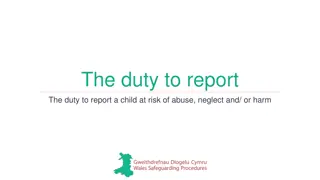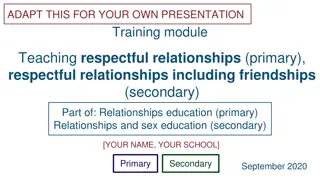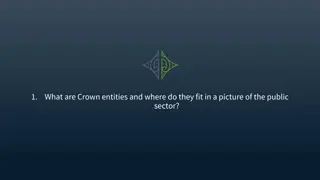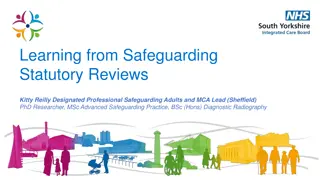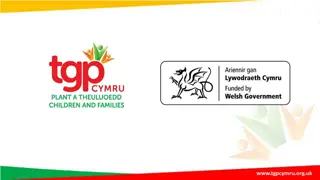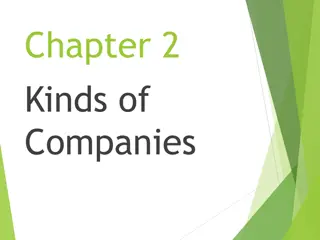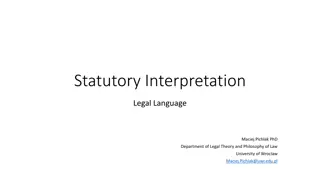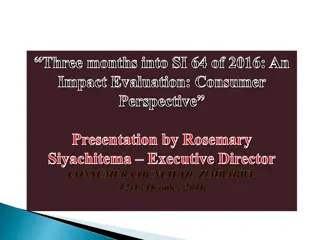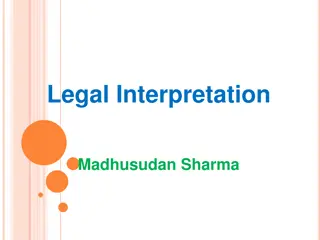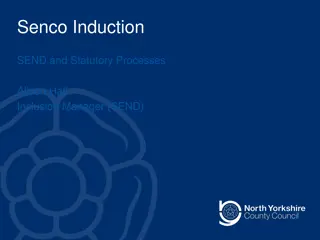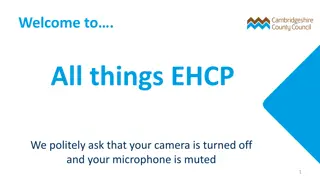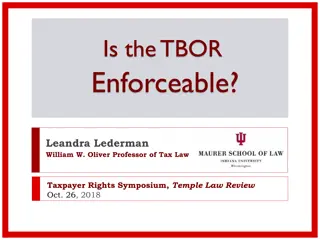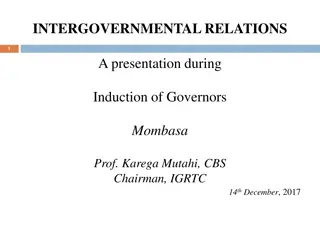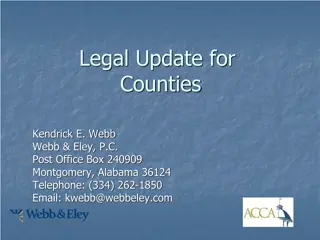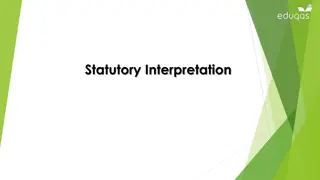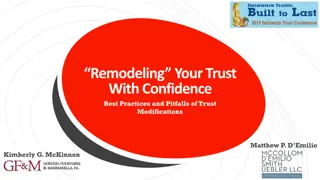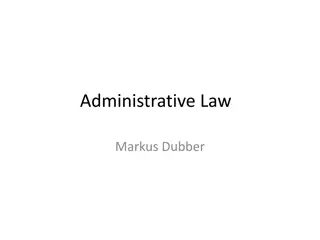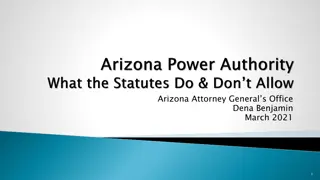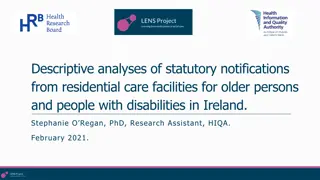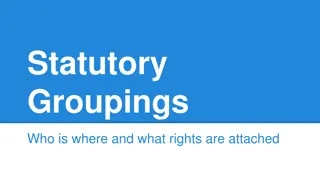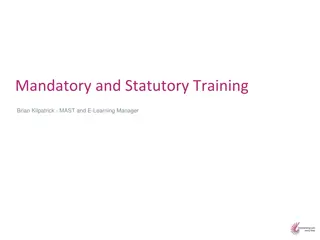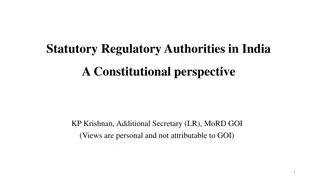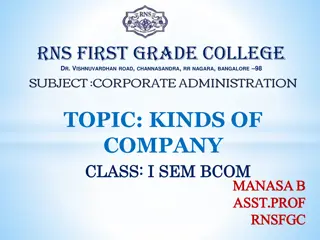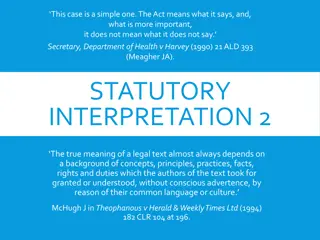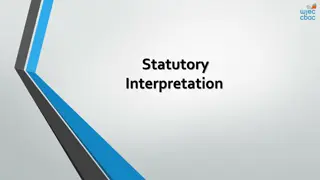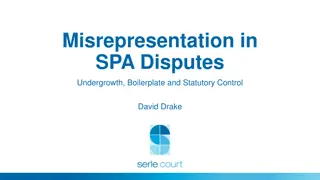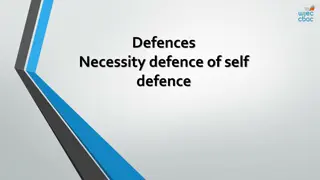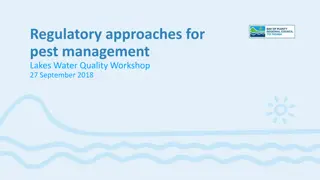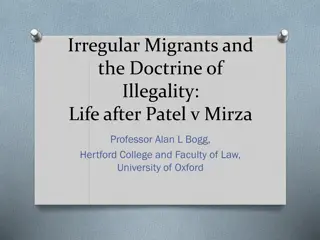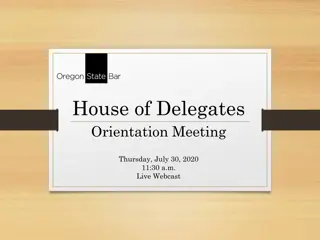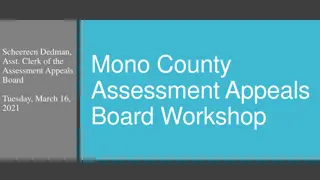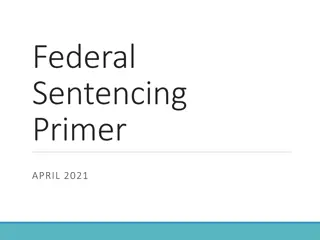Overview of DSW End Point Assessment Team Leader Level 3
DSW End Point Assessment Team Leader Level 3 provides a clear understanding of the assessment process, ensuring individuals comprehend why and when it occurs, responsibilities involved, and how DSW supports them. It covers topics such as what End Point Assessment entails, assessment design and deliv
1 views • 18 slides
Understanding the Duty to Report Child Abuse and Neglect
The duty to report concerns of child abuse, neglect, and harm is essential for practitioners and individuals coming into contact with children. This responsibility, whether statutory or non-statutory, requires prompt action to safeguard children at risk. Recognizing and acting on suspicions of abuse
0 views • 20 slides
Teaching Respectful Relationships: Primary and Secondary Curriculum Training Module
This training module focuses on teaching respectful relationships, including friendships, for primary and secondary school students. It covers key knowledge, strategies for handling class discussions, and ways to link topics across the curriculum. Schools can adapt this non-statutory guidance to com
2 views • 90 slides
Differences Between Statutory Crown Entity Boards and Commercial or NGO Boards
Statutory Crown entity boards differ from commercial or NGO boards in terms of ministerial influence, funding limitations, public scrutiny, and government standards. The responsible Minister has more interaction, and boards have limited discretion in funding and pricing adjustments. Crown entities f
1 views • 19 slides
Understanding Safeguarding Statutory Reviews and Best Practices
Exploring the importance of learning from safeguarding statutory reviews in various domains such as child practice, safeguarding adults, and domestic homicide reviews. The content discusses the statutory requirements for review processes and the responsibilities of relevant agencies in cases of abus
0 views • 7 slides
Core Area of Statutory Bank Branch Audit and Review of Advances by Hitesh Pomal
Explore the core areas of statutory bank branch audit, advances, NPAs, types of advances, review of advances, and considerations during the review. Learn about sanctioned terms, parameters, consortium advances, and frequent MOCs reported by auditors. Understand IRAC norms regarding income recognitio
0 views • 28 slides
Understanding the National Approach to Statutory Advocacy for Children and Young People
Exploring the significance of the National Approach to Statutory Advocacy for Children and Young People, this content delves into the role of advocates, the UN Convention on the Rights of the Child, and the fundamental principles guiding statutory advocacy. Learn about different types of advocacy, u
2 views • 44 slides
Understanding Different Types of Companies in Business
Explore the various kinds of companies in the business world, including statutory companies, registered companies, private companies, public companies, and more. Learn about the differences between private and public companies, statutory company examples like LIC and RBI, and the characteristics of
0 views • 25 slides
Understanding Statutory Interpretation in Legal Context
Explore the intricacies of statutory interpretation, linguistic and non-linguistic methods, and types of interpretation in legal contexts. Uncover the significance of legal reasoning, historical perspectives, and comparisons between Anglo-Saxon and Continental legal cultures. Delve into the complexi
1 views • 17 slides
Impact Evaluation of Statutory Instrument 64 of 2016 on Consumer Prices in Zimbabwe
Statutory Instrument 64 of 2016 in Zimbabwe regulates the importation of various products to promote local production. The legislation does not ban imports but requires licensing for bulk importers. The consumer prices of certain goods increased post-implementation, influenced by factors beyond SI 6
0 views • 14 slides
Legal Interpretation and Statutory Construction Guidelines
Legal interpretation and statutory construction present challenges when new laws are enacted. Courts must interpret statutes based on their popular sense, literal construction, and mischief rule to achieve the intended purpose. Sometimes, even clear language can pose difficulties in legal cases.
0 views • 9 slides
Statutory Assessment and Processes in Special Education
Understanding the statutory assessment process for children and young people with special educational needs and disabilities (SEND), including who can make requests, the steps involved, and the importance of EHCPs. Learn about the roles of casework managers and officers in assessing needs, providing
1 views • 15 slides
Overview of EHCP Processes and Statutory Assessment Team
This content provides detailed information on EHCP processes, including the role of the Statutory Assessment Team, the number of EHCPs maintained over the years, and the responsibilities of Casework Officers in the assessment and review process. It covers the statutory assessment process, the involv
0 views • 42 slides
Mastering Academic and Research Report Writing
Academic and research report writing is a crucial skill for modern educators. This course covers principles, techniques, and tools for effective dissemination of findings. Learn about the meaning of reports, classification, steps for writing, layout, and mechanics of research reports. Understand the
0 views • 45 slides
Understanding the Enforceability of Taxpayer Bill of Rights (TBOR)
Explore the enforceability of the Taxpayer Bill of Rights (TBOR) as outlined in IRC 7803(a)(3), delving into its history, statutory interpretation, the question of remedy, and enforcement issues. Discover the evolution of TBOR, statutory text, and challenges surrounding its enforcement.
0 views • 21 slides
Understanding Intergovernmental Relations in Kenya
Intergovernmental Relations (IGR) in Kenya involve interactions between government entities within a decentralized system. This presentation outlines the institutional framework, disputes, progress of audits, and assets/liabilities in IGR. It emphasizes the importance of statutory and non-statutory
2 views • 44 slides
Legal Update on Statutory Cap for Cities and Counties in Alabama
Alabama's statutory cap on damages against cities and counties has been a topic of contention since its enactment in 1977. Attempts to circumvent this cap by suing city or county employees individually have led to legal debates and court decisions, such as the cases of Morrow v. Caldwell and Alabama
1 views • 36 slides
Understanding Statutory Interpretation: Rules, Approaches, and Challenges
Explore the concept of statutory interpretation, including the intention of Parliament, problems that can arise, various rules and approaches used in interpretation, aids and presumptions, criticisms, and the relationship between statutory interpretation, EU law, and precedent. The Literal Rule, a c
2 views • 26 slides
Trust Modifications: Best Practices and Pitfalls
Common law allows for modification of irrevocable trusts with consent from settlor and beneficiaries, but changes must align with trust purpose. Recent trends show more flexibility in trust modifications, with new statutory remedies and tools like decanting and nonjudicial settlement agreements. How
0 views • 19 slides
Understanding Three Approaches to Statutory Interpretation in Administrative Law
Explore the concepts of Ordinary Meaning, Context, and Three Approaches to Statutory Interpretation in Administrative Law through insightful discussions and relevant examples. Gain a deeper understanding of legal interpretation principles and their application in legal frameworks.
1 views • 14 slides
Understanding Higher Education Assessment: The Complete Guide
Higher education assessment involves a systematic process of collecting, reviewing, and utilizing information to improve student learning and development. This guide covers the assessment cycle, learning outcomes, the mission behind assessment in higher education, what assessment is and is not, reas
1 views • 36 slides
Overview of Arizona Attorney General's Office Statutory Authority
The Arizona Attorney General's Office, represented by Dena Benjamin in March 2021, holds broad statutory authority subject to specific regulations and oversight. The office must adhere to various laws and regulations, file annual budgets, conduct audits, and comply with legal requirements in its ope
0 views • 26 slides
Overview of Environmental Impact Assessment and Strategic Environmental Assessment Directives
Environmental Impact Assessment (EIA) and Strategic Environmental Assessment (SEA) play crucial roles in evaluating the impact of planned activities on the environment. This content delves into the concept, origins, development, and key elements of environmental assessment, discussing the legal fram
2 views • 35 slides
Descriptive Analysis of Statutory Notifications from Residential Care Facilities in Ireland
This study conducted by Stephanie O'Regan, a Research Assistant at HIQA, presents a descriptive analysis of statutory notifications from residential care facilities for older persons and people with disabilities in Ireland. The research explores the types of adverse events reported, trends in notifi
0 views • 30 slides
Institutional Assessment and Effectiveness Workshop Achievements at SUNY Oneonta
The Office of Institutional Assessment and Effectiveness at SUNY Oneonta has made significant progress in developing assessment protocols and processes, leading to a culture of assessment. This includes completing planning and assessment cycles, establishing objectives and procedures, and aligning u
1 views • 16 slides
Understanding Statutory Groupings in Teacher Evaluation Systems
Explore the statutory groupings in teacher evaluation systems, including the relationship between TAP and ISBE ratings, factors determining grouping in Group I to Group IV, and the specific rights attached to each group based on summative ratings. Learn who falls into Group 1 and Group 2 based on pe
0 views • 20 slides
Mandatory and Statutory Training Overview
Mandatory and Statutory Training (MAST) is essential for all staff to ensure compliance and competence in areas like Fire Safety, Health, Infection Prevention, and more. This training is guided by Brian Kilpatrick, the MAST and E-Learning Manager, and covers accessing the MAST system, checking compl
0 views • 10 slides
Understanding Statutory Regulatory Authorities in India: A Constitutional Perspective
This presentation explores the rationale, rise, and structure of Statutory Regulatory Authorities (SRAs) in India within a constitutional framework. It discusses the importance of specialization, independence from political pressures, and global developments in regulatory agencies. The content delve
0 views • 31 slides
Types of Companies in Corporate Administration
This article discusses the various kinds of companies in corporate administration, including incorporated, chartered, statutory, and registered companies. It covers the definition of a company, different types of legal entities, and examples of each type. The classification of companies based on inc
0 views • 17 slides
Principles of Statutory Interpretation in Legal Context
Understanding statutory interpretation involves analyzing legal texts in light of background concepts, principles, and legislative intent. This process requires considering various factors to determine the true meaning of a statute. Different cases and statutes are referenced to illustrate the compl
0 views • 15 slides
Approaches to Statutory Interpretation: The Literal Rule
The Literal Rule in statutory interpretation mandates that all words in a statute be given their ordinary and natural meanings, even if the result seems absurd. This approach emphasizes following the clear wording of the law as enacted by Parliament. Advantages include respecting parliamentary sover
0 views • 26 slides
Misrepresentation in SPA Disputes: Undergrowth, Boilerplate, and Statutory Control
Claimants in misrepresentation disputes often struggle through obscure details to build their claims. Boilerplate clauses like No-Reliance and Entire Agreement aim to prevent such claims. Legal principles like contractual estoppel can bind parties to false statements. Statutory control under the Mis
0 views • 11 slides
Understanding Self-Defence Law: Necessity and Statutory Defences
Self-defence is a crucial aspect of criminal law, encompassing actions taken to protect oneself or others from harm. This includes both common law defences and statutory provisions such as those outlined in the Criminal Law Act 1967. The law allows individuals to use reasonable force in circumstance
0 views • 11 slides
Pest Management Regulatory Approaches for Lakes Water Quality Workshop
Explore the regulatory framework for pest management in lakes, highlighting the role of councils, statutory and non-statutory plans, regional pest management strategies, and pest control programs. Discover key elements such as biosecurity objectives, statutory requirements, and the importance of col
0 views • 13 slides
Understanding Irregular Migrants and the Doctrine of Illegality
Exploring the concept of illegality doctrine in relation to irregular migrant workers' statutory claims, the potential impact of Patel v Mirza case, and the general structure of examining the employment rights of irregular migrants. The discussion delves into the characterization of statutory rights
0 views • 11 slides
Overview of Oregon State Bar: House of Delegates Orientation Meeting and Statutory Purpose
This content provides insights into the upcoming House of Delegates orientation meeting happening on July 30, 2020. It covers information about the Oregon State Bar, its role in serving justice and the public interest, its statutory purpose, Keller fees, OSB Bylaw 12.1 on legislation and public poli
0 views • 18 slides
Understanding the Essentials of Statutory Interpretation in Legal Practice
Explore the key elements of statutory interpretation, such as general principles and methods, central interpretive criteria, drafting tips, and the process of deciphering an Act. Learn about the anatomy of an Act, parliamentary drafting exercises, and what to expect in an Act. Delve into tips for dr
0 views • 11 slides
Expectations and Responsibilities of Board Members in Statutory Entities
Board members of statutory entities are collectively expected to ensure consistent and effective entity performance, financial responsibility, and collaboration. Individually, they must act with integrity, comply with legislation, and avoid conflicts of interest. Boards have a crucial role in monito
0 views • 5 slides
Understanding Assessment Appeals Process in Mono County
Explore the Assessment Appeals process in Mono County, including types of assessments, appeal deadlines, Board structure, and the appeal process. Learn how the Assessment Appeals Board functions, how to work with the Assessor's Office, and the statutory requirements for holding business meetings. Ga
0 views • 10 slides
Understanding Federal Sentencing Principles
Federal sentencing is determined by various factors including the applicable sentencing statute, statutory maximum and minimum terms of imprisonment, fines, supervised release terms, special assessments, the U.S. Sentencing Commission Guidelines Manual, judicial discretion, and factors outlined in 1
0 views • 26 slides

